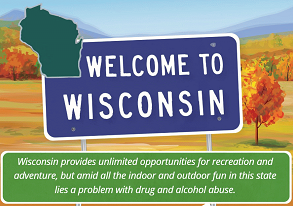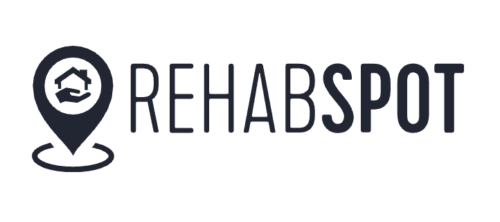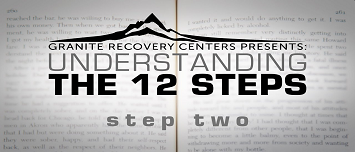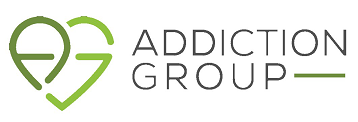ADDICTION RESOURCES

International Institute for Trauma and Addiction Professionals: www.iitap.com
Offers training and educational resources for practitioners who treat people with addictive and compulsive sexual behaviors.
In the early 1980s, Dr. Patrick Carnes published Out of the Shadows, raising awareness about sexual compulsivity and addiction; earning himself a reputation as the leading expert in his field. This led to the creation of the Certified Sex Addiction Therapist, or CSAT®, program, a cutting-edge training and certification program built around academic study, experiential training, supervision and assessment competence. As the program grew, so did the number of candidates, requiring the formation of an “institute” -- the International Institute for Trauma and Addiction Professionals (IITAP).
As IITAP continued to grow and expand, additional certification options were created to encompass professionals across a multitude of diverse settings: Associate Sex Addiction Therapist (ASAT) and Pastoral Sex Addiction Professional (PSAP).
Since its inception, IITAP’s vision is to be a premier training resource for therapists specializing in the areas of addiction recovery and trauma.
Offers training and educational resources for practitioners who treat people with addictive and compulsive sexual behaviors.
In the early 1980s, Dr. Patrick Carnes published Out of the Shadows, raising awareness about sexual compulsivity and addiction; earning himself a reputation as the leading expert in his field. This led to the creation of the Certified Sex Addiction Therapist, or CSAT®, program, a cutting-edge training and certification program built around academic study, experiential training, supervision and assessment competence. As the program grew, so did the number of candidates, requiring the formation of an “institute” -- the International Institute for Trauma and Addiction Professionals (IITAP).
As IITAP continued to grow and expand, additional certification options were created to encompass professionals across a multitude of diverse settings: Associate Sex Addiction Therapist (ASAT) and Pastoral Sex Addiction Professional (PSAP).
Since its inception, IITAP’s vision is to be a premier training resource for therapists specializing in the areas of addiction recovery and trauma.
SEX ADDICTION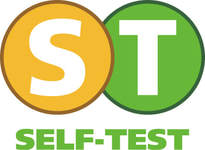
For self-tests go to: www.sexualrecovery.com/resources/self-tests.php Men’s Sexual Addiction / Intimacy Disorders Screening Test Women’s Sexual Addiction / Intimacy Disorders Screening Test Cybersex Addiction Screening Test Partners of Sex Addicts Screening Test 
SexHelp
www.sexhelp.com Sex Help is an online resource developed by Dr. Patrick Carnes, offering helpful information on addiction, sex addiction, pornography addiction, financial disorders, books, exercises, and referrals. Sex addiction is a disease of the brain where a person can only feel pleasurable feelings when performing some type of sexual behavior. It is a repeated pattern of behaviors that change a person’s entire existence, shifting his or her belief systems into an entirely separate reality. At its very core, sex addiction is division of the self. The person you were before before the addiction is no longer the same and it’s as if a new person has taken over. This person begins to exist in a world where he or she adopts the following core beliefs:

Society for the Advancement of Sexual Health (SASH)
www.sash.net The Society for the Advancement of Sexual Health (SASH) is a nonprofit multidisciplinary organization dedicated to scholarship, training, and resources for promoting sexual health and overcoming problematic sexual behaviors. Founded in 1987 by Patrick Carnes, Richard Santorini and Ed Armstrong, SASH began as a membership organization for people concerned with sexual addiction problems. SASH serves both treatment professionals and recovering individuals, providing resources and information on addiction therapists, treatment centers, and support groups. Culture Reframed provides education and resources to build resilience and resistance to hypersexualized media and porn.
Curious about the latest research on internet porn's effects? Wondering about sexual dysfunction? Escalation to extreme material? Low desire for partnered sex? Social anxiety, cognitive problems, lack of motivation? Check out Your Brain on Porn!
The United States is in the midst of a nationwide opioid crisis impacting people from all walks of life, and in every state. Wisconsin, like many other states, has seen a rise in opioid-related issues, with 1,079 deaths reported by the Centers for Disease Control in 2016 alone. Despite the rise in opioid use — both prescription and illicit — there are many resources available. With drug rehabilitation and medical treatment facilities in Wisconsin and throughout the United states, recovery is possible for those affected by Wisconsin’s opioid crisis.
|
SUBSTANCE ADDICTIONREHABSPOT
www.rehabspot.com It’s time to restart your life! Addiction takes so much away from you: your goals, your dreams, your family, your life, and even the person who you truly are. Luckily, you can take it all back. One of the biggest obstacles that many who are struggling with substance abuse disorders face is coming to terms with the fact that they have a problem. It’s unsurprising that many people have trouble admitting they have an addiction. No matter what addiction you are struggling with, there is a treatment program out there for you. REHABSPOT.COM is very informative and offers helpful lists of substance addiction resources.
Granite Recovery Centers realizes the importance of the 12 Steps in addiction recovery. They believe that without a daily design for living in full practice, the disease of addiction, which centers in the mind and feeds on gratification, will go untreated and relapse will almost certainly occur.
In order to provide clarity about what the 12 Steps are and are not, and can be at their best, they have launched an 8-part 12-Steps of Recovery video series featuring their leadership team and members of our Alumni Tribe. We hope that these videos shed light on the role of the 12 Steps in treating substance use disorder.
Addiction Group is an informational web guide created for people struggling with substance use disorders, alcohol use disorders, and co-occurring mental health disorders. Their team of journalists, researchers, doctors, and medical professionals helps people find the right treatment for their individual needs and unique situations.
ILLICIT & PRESCRIPTION DRUG ADDICTION
DrugRehab www.drugrehab.com DrugRehab.com provides information regarding illicit and prescription drug addiction, the various populations at risk for the disease, current statistics and trends, and psychological disorders that often accompany addiction. There is information on spotting the signs and symptoms of substance use and hotlines for immediate assistance. DrugRehab.com has published an educational guide about PTSD and substance abuse along with information related to relapse. "Post-traumatic stress disorder (PTSD) is a debilitating mental anxiety disorder that develops after an individual experiences or witnesses a traumatic, tragic, terrifying or life-threatening event. People suffering from PTSD experience flashbacks to the traumatic event and a sensitivity to emotional or mental triggers that remind them of the experience, causing negative changes in their lifestyles and an inability to achieve normal goals or objectives." To learn more about PTSD and addiction, click on the following link: www.drugrehab.com/co-occurring-disorder/ptsd/ The American Society of Addiction Medicine defines relapse as “a process in which an individual who has established abstinence or sobriety experiences recurrence of signs and symptoms of active addiction, often including resumption of the pathological pursuit of reward and/or relief through the use of substances and other behaviors.” To learn more about relapse, click on the following link: www.drugrehab.com/recovery/relapse/ Talking to Children and Teens About Drugs drugreport.com
The world can present plenty of dangers for young people, and one particularly prevalent issue to be concerned about is the abuse of illicit substances. This can include alcohol, illicit drugs, and even prescription drugs. The first step in keeping children and teenagers safe from substance abuse is to talk about the dangers and risks; open communication is crucial. https://www.drugreport.com/talking-to-children-and-teens-about-drugs/ Click here to explore 12-Step ResourcesClick here to explore Trauma Resources |



